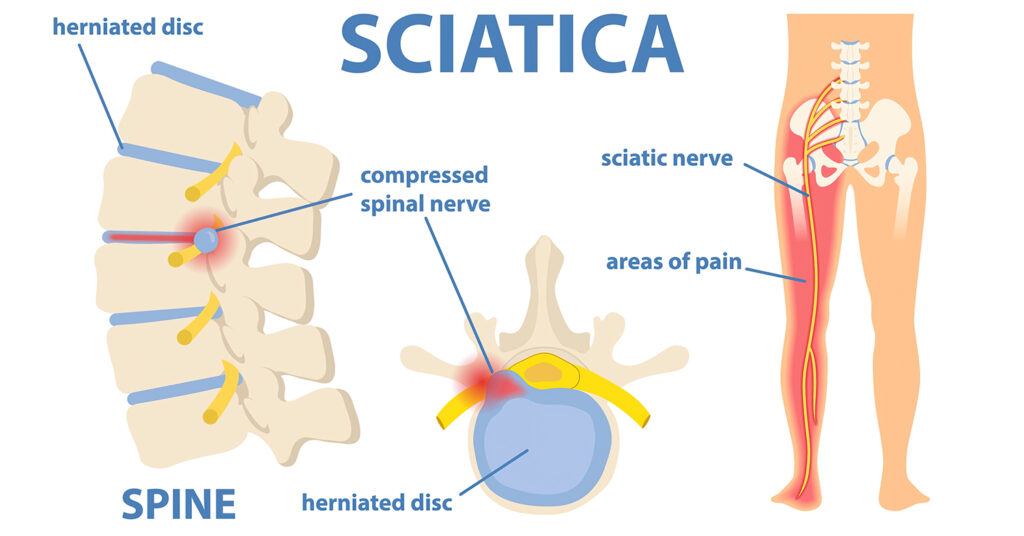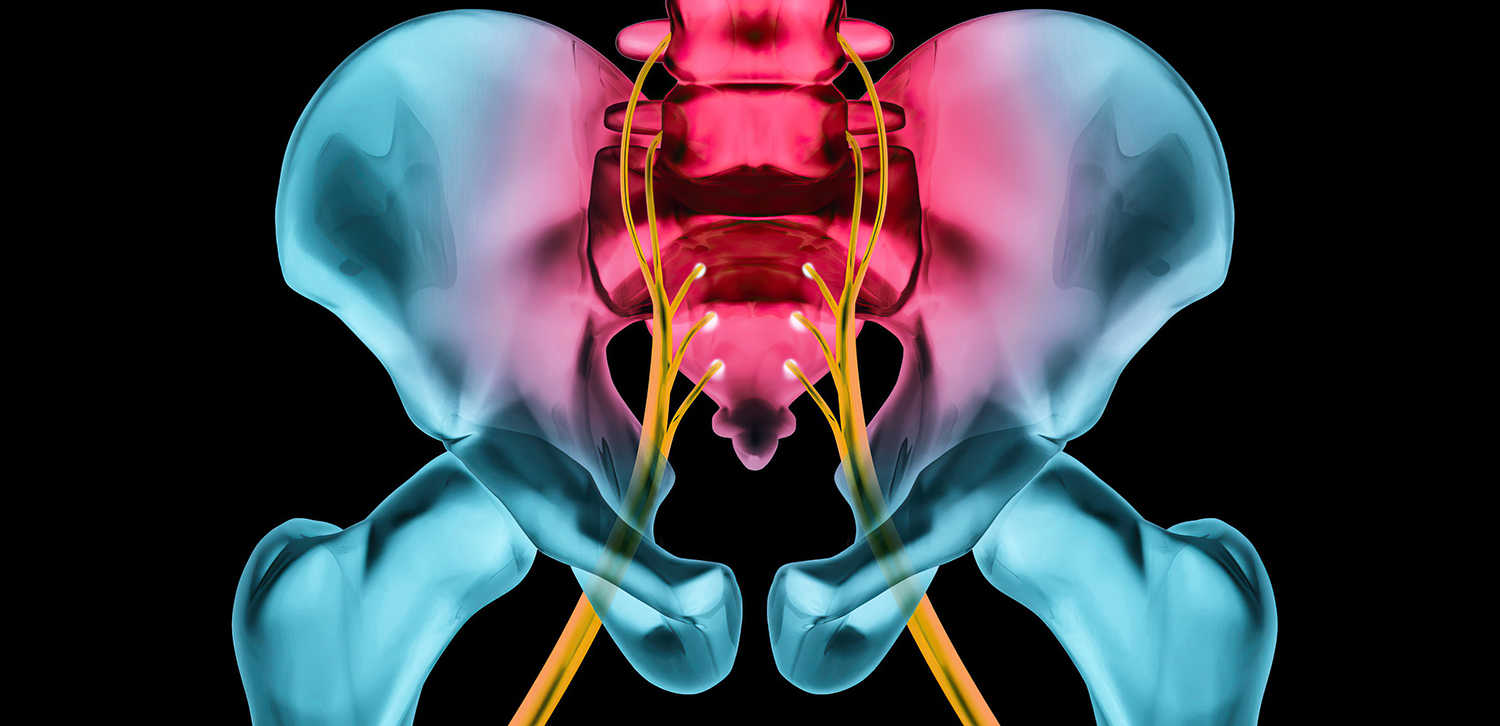SCIATICA

Piriformis syndrome is a condition that causes the compression of the sciatic nerve due to a tightened, spastic or inflamed piriformis muscle, which is located near the buttock and crosses over the sciatic nerve.
While sciatica — the pain and symptoms associated with sciatic nerve compression — can be caused by many issues, including spine conditions like a herniated disc, piriformis syndrome is a result of compression by the piriformis muscle, which is a flat muscle in the hip that runs between the base of the spine and the thigh bone. When the piriformis muscle tightens, it can place pressure on the nearby sciatic nerve and cause symptoms of pain and numbness in the buttock and leg.
Causes of piriformis syndrome and sciatica
Piriformis syndrome is caused by muscular injury of two types: overload and bio-mechanical inefficiencies. Overload refers to overexertion from sports, lifting, or other rigorous activities, while bio-mechanical inefficiencies refer to continued misuse of the piriformis muscle, such as prolonged bad posture or incorrect form while jogging.
Symptoms of piriformis syndrome and sciatica
Piriformis syndrome can compress the sciatic nerve and cause the same symptoms as sciatica caused by a degenerative spine condition. These symptoms may include:
- Discomfort surrounding the hip bone or felt deep in the buttocks
- Pain that radiates through the buttocks and down the back of the leg
- Numbness or loss of feeling in the thighs, knees, calves, ankles, or feet
- Tingling or a pins-and-needles sensation in the lower half of the body
If you are experiencing these symptoms, consult your physician to determine your diagnosis and draft a treatment option to relieve your pain.
Treatment options for piriformis syndrome and sciatica
Sciatica that results from a muscle strain should heal itself in a matter of weeks. Consult your doctor about conservative treatments such as physical therapy that will help stretch your piriformis muscle and relieve your pain.
If you have been diagnosed with a spine condition as the underlying cause of your sciatica and are considering surgery after exhausting conservative treatments, contact our specialists at TriMed Spine & Joint 855-4-TRIMED.
TriMed Spine & Joint is a leader in minimally invasive and complex spine surgery and has helped thousands of patients for more than a decade find relief from chronic neck or back pain. Our board-certified spine specialists can draft the proper treatment for piriformis syndrome.

